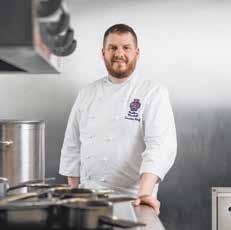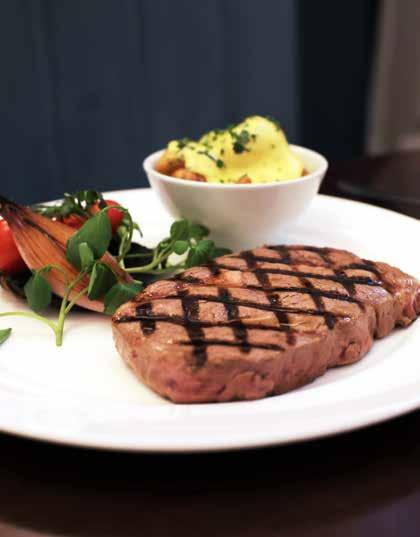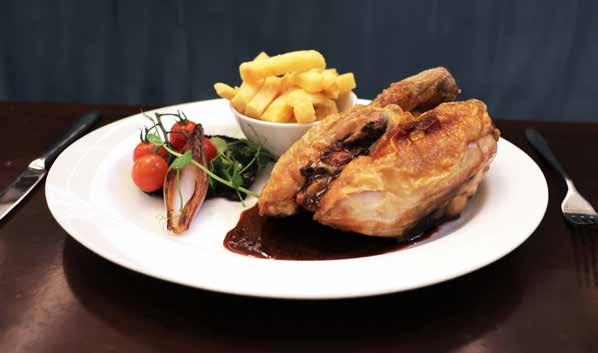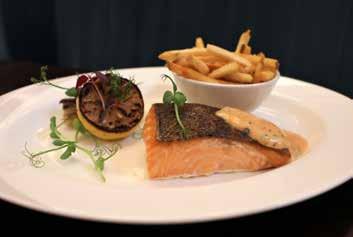
2 minute read
Quality First
Members might have noticed organic options appearing on the menu; the Club’s Executive Chef explains why.
Words by Jenny Linford Photography by Jamie Lau
Advertisement
WHEN IT COMES to the food that members are offered at both clubhouses, a great deal of care is taken to source ingredients responsibly and, wherever possible, from local suppliers – whilst also ensuring that quality remains paramount.
The menus in the Brooklands Room and the Fountain Brasserie change every month, with members accustomed to seeing new dishes appearing, partly based upon what is in season and suited to the time of year. Three organic choices have been added recently: a half chicken, a rib eye steak and a salmon fillet, all cooked on the grill. “We know that animal welfare is an issue that members care about,” says Matthew Marshall, the Club’s Executive Chef. “As a Club, our job is to offer members a choice, so we wanted to provide some organic options which weren’t available before.”
Organic certification in the UK means high welfare standards for livestock. Organic chickens, for example, are reared in smaller flocks than free range chickens, have continuous daytime access to outdoor

Position: CaptionAt audi ducia sundestiam aut diae dem aria nem quo verrum eum facilignis

ranges planted with suitable vegetation amongst which they can forage, are not routinely treated with antibiotics and are fed an organic, non-GM diet.
For Matthew, ensuring that only high standard ingredients are used in his kitchens is a priority. “An ingredient can be organic without necessarily tasting great so I’ve made sure that we’re sourcing meat, poultry and fish which is not only organic but also of excellent quality and flavour.”
The focus on organic sourcing is part of a larger overall picture at the Club, which saw the Board approve an Environmental, Social and Governance strategy in March. As part of this, Matthew confirms, “we’re working towards purchasing as locally as possible, ideally within a 50-mile radius of each clubhouse. The aim is to reduce our transportation footprint to a low level and offset the remaining emissions as we work towards becoming net zero.”
The farm where the Club’s organic beef and chicken comes from is in Surrey, just 30 miles from Pall Mall. With local sourcing in mind, the spacious grounds at Woodcote Park are seen as an important resource too; the Club has started to plant a herb garden in the Walled Garden to supply the kitchens and there are also plans to reintroduce bee hives later this year. “It would be wonderful to be able to offer members honey for breakfast which comes from our own bees,” observes Matthew.
“We’re starting with these three organic menu options,” he concludes, “which will cost more, but not a lot more. It will be interesting to see what the take-up is. What we really need from members is feedback. We want to understand what our members desire and see how we can fulfil those needs. For us, it’s very much about offering choices and seeing what the response to those choices is.”


